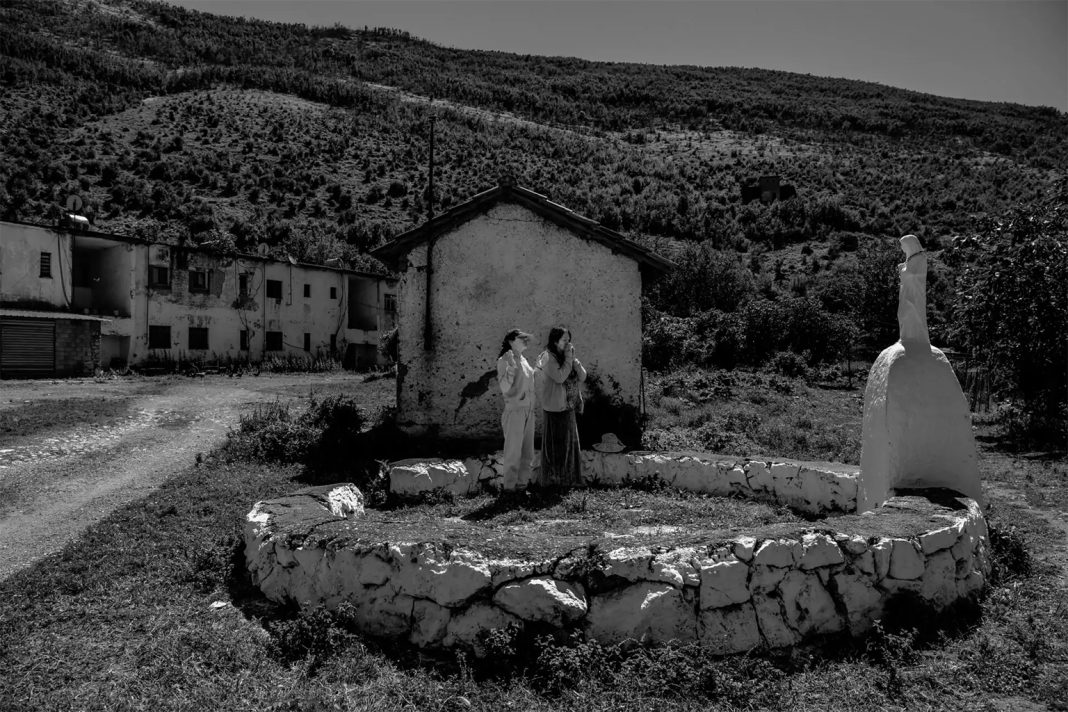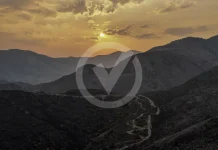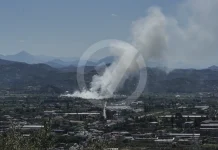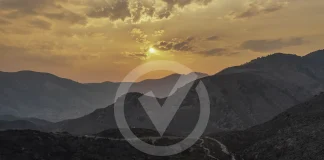By: Sebi Alla
Photos: Atdhe Mulla
Hell seems to have come down to earth, settling in the former prison camp of Torovica in Lezhë, where 31 residents still live, divided into eight families. Two women pray loudly in front of a small statue of Saint Mary, holding tightly to a cross and a holy book. We hear them asking for health and wellbeing, promising to follow God’s righteous path… However, the road leading to the former prison and internment camp for political prisoners of the communist era is harsh. The sufferers left in 1991, but the camps of those dark times continued to hold their ‘prisoners’ willingly…!
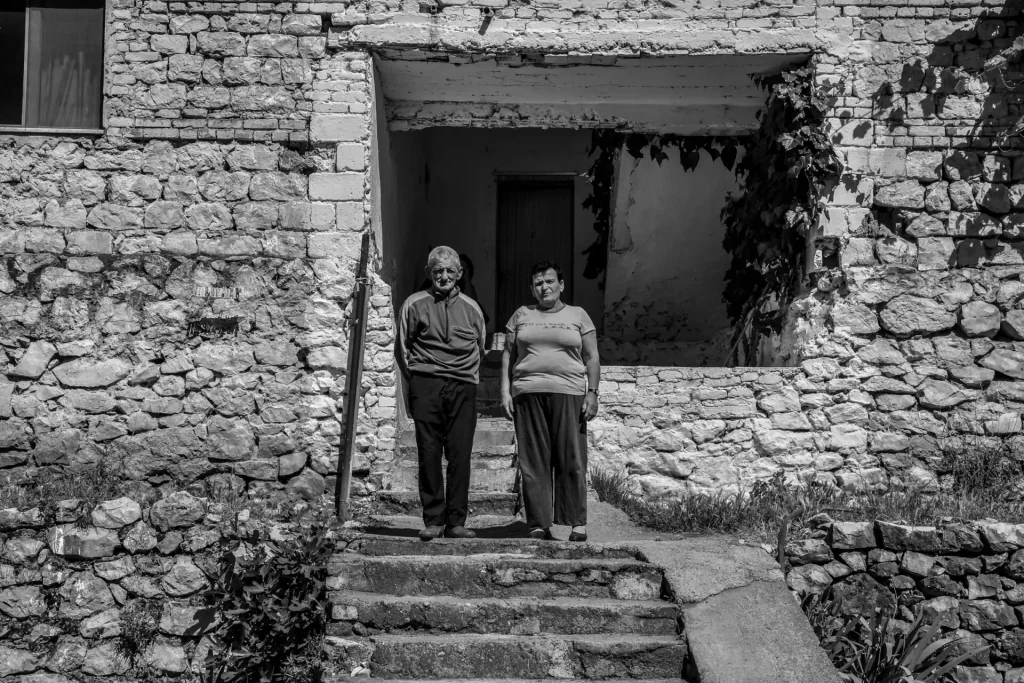
‘Trouble, my son, trouble brought us here, and trouble holds us here. We have no water, no support, no electricity, we have been forgotten’,
Marie Velaj
They found misery
The internment camp, occupied, bought, and resold by residents who arrived mainly in the early 1990s from the remote areas of Puka, Mirdita, and Tropoja, remains unchanged, so much so that even time has not eroded it, silently challenging the entire system and showing that ‘internment’ still goes on… They sought fertile land and closeness to ‘civilization’, but what they found bears no resemblance to that dream, which remains just that even today. ‘Trouble, my son, trouble brought us here, and trouble holds us here’, says 63-year-old Marie Velaj, who descended from the Rubik mountains in 1991.
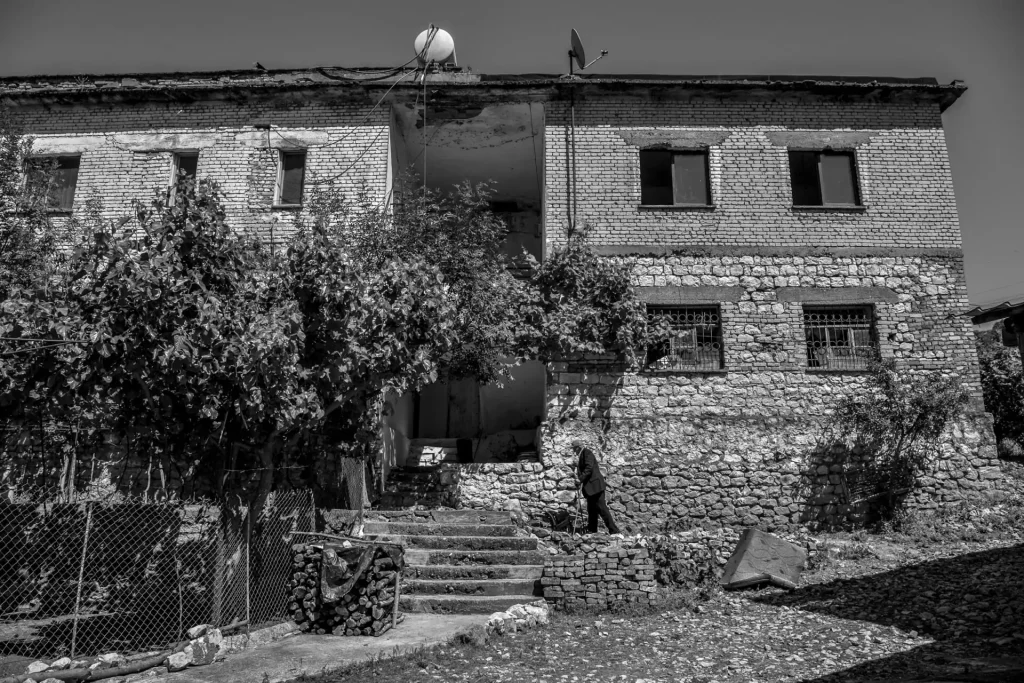
She came seeking a better life, but what she found back then, and what remains after 33 years of living there, is poverty, despair, and a constant call for someone from the local or central government to remember her and seven other families. ‘We have no water, no support, no electricity, they have forgotten us’, Maria says, adding after every sentence, ‘We live the same or even worse than the internees did at that time’.
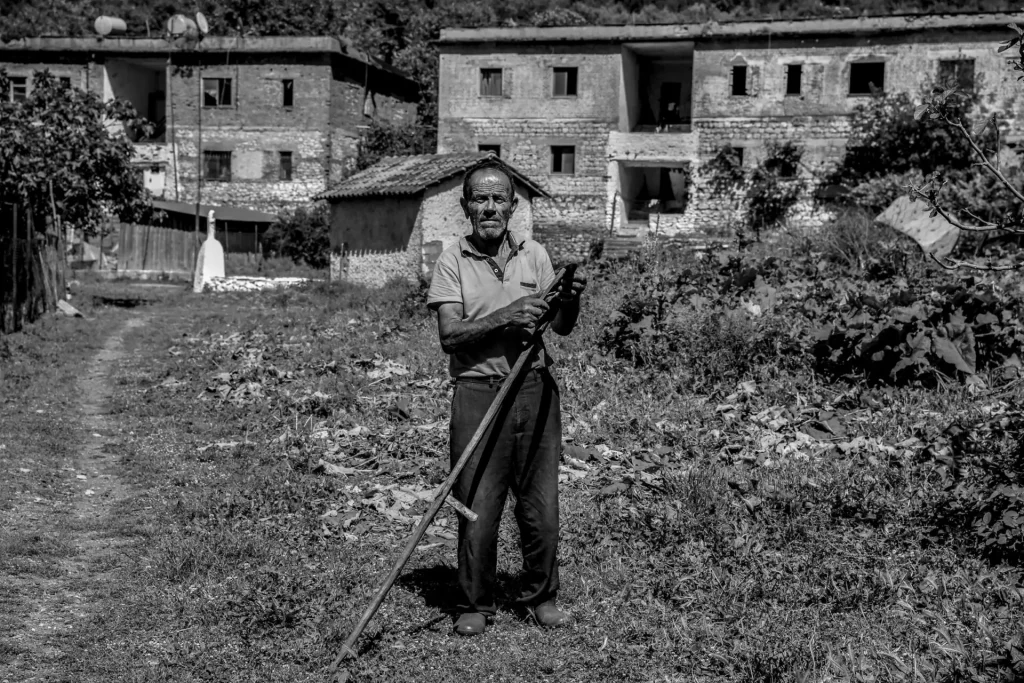
I bought this house
9 million Lek (old lek),
11 years ago I came from Tropoja, but the hardships never left me,
Niman Osmani
A free outcry!
Perhaps one of the few differences between that old world (communism) and today’s world (democracy) is that now people can openly complain about the authorities not investing anything here, without fearing they will be ‘punished’ for agitation or propaganda against the state. In the building where police officers once stayed, Niman Osmani lives with his wife and daughter, facing difficulties much like other families. ‘I bought this house for 9 million Lek (old lek), 11 years ago. I came from Tropoja, but the hardships never left me’, says Osmani, as he struggles with an old sickle to clear the thorns and wild weeds that have overtaken the doorstep of his small yard. He calls it a house, though it is smaller and humbler than the other buildings where the privileged police and guards lived. ‘This house has been sold three times before, I’m the fourth owner’, Osmani says, adding that he doesn’t even have any ownership documents.
Camp
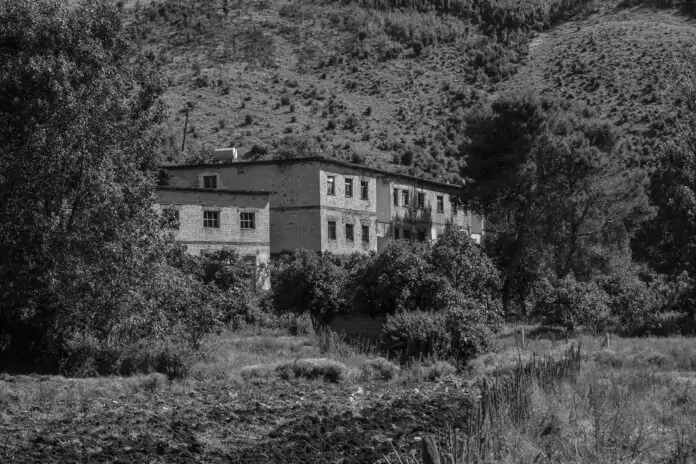
The entire site is officially state-owned and falls under the Ministry of Justice, as it’s still registered in the cadastral records as a ‘former internment camp’. Initially, some locals moved in, claiming ancestral ties to the land. Later, others, often self-proclaimed tough guys, took control of parts of it and sold them to poor families arriving from remote northern regions. ‘When we came here, I truly believed it would be temporary, just until we found a way to settle in Lezhë or even Tirana’, says Ndue Velaj, husband of Marie.
‘Today, together they receive a pension of 19,000 LEK and 9,000 that his wife receives. They manage, somehow, and say they’ve done their best to fix up the inside of their home. – Couple Ndue and Marie
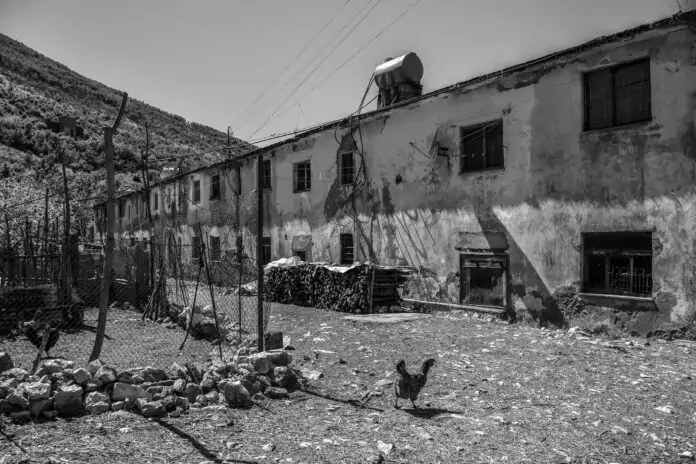
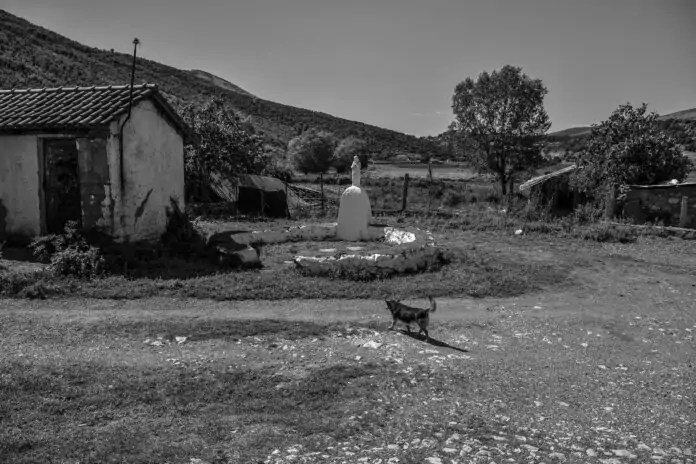
The Present
That time never came. Now 74 years old, he finds comfort only in knowing that his children have managed to build better lives, two living abroad and the other two in Lezhë. They, too, face challenges, but nothing compared to the gray, near-hopeless reality their parents endure, a life that still mirrors the bleakness of the four buildings that once served as both internment camp and prison for political detainees.
Two of his four children were born precisely in this camp, whose two rooms he had turned into a home. Today, together they live on a pension of 19,000 lekë (Albanian lek) and another 9,000 lekë that his wife receives. They get by somehow, but he says they’ve tried to fix everything in the house, though what’s visible is a clutter of objects and the smell of poverty. They look to the state, and even though they have received nothing but broken promises, they still complain and ask.
‘One of the power lines that brings electricity to my house passes through that stable; the wire fell and the neighbor’s cow was electrocuted’, he says, full of grief over the loss, Niman Osmani
‘We’re poor, but we’re people too. We buy water, 1,000 LEK per bottle. As for bathing properly (in a shower), that’s not even up for discussion’, says Maria, pointing to an old cauldron used to heat water and to wash using cans.
The road to part of the village of Malecaj is relatively good, but the turn leading to the camp and that place resembles a path warning you that ‘the dictatorship of the proletariat punishes the enemies of the party’. ‘No road, no water, dim electricity that often cuts out, ambulance, not even worth mentioning’, says Maria.
The ‘dead’ cow in the camp
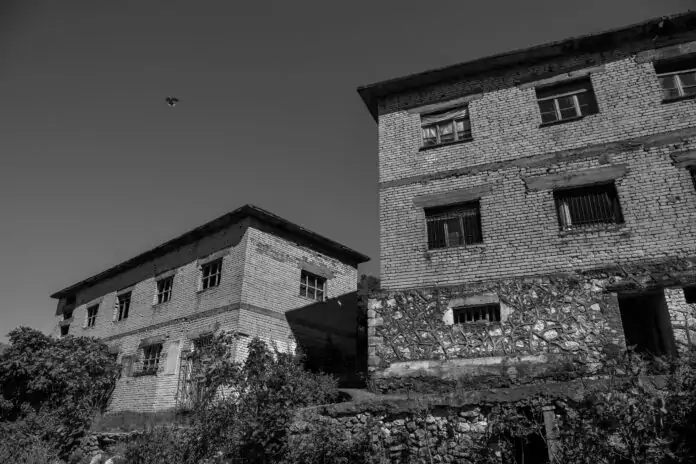
Three power lines hang precariously above the residents’ heads. These are still the poles from the communist era that bring a little light to the dark camp. ‘I have complained several times to OSHE (Energy Distribution Operator) to replace the network because for many years nothing has been done’, says Nimani, who then shares his big problem… ‘One of the power lines that supplies electricity to my house runs through that stable, the wire fell and the neighbor’s cow was electrocuted’, he says, deeply worried about the damage, but also the troubles because losing a cow in this extreme poverty is a heavy blow, almost like the main source of ‘monthly income’. Nimani raises his voice more when talking about the people at OSHE, more so that the neighbor hears that he was not to blame for the ‘death of the cow’, since the fault lies somewhere within the state…
‘They only remember to come when there are elections.
They promise us a lot, then leave us waiting to be promised
again the same things after four years’.
Promises
‘They only remember to come when there are elections. They promise us a lot, then leave us waiting to be promised again the same things after four years’, says Maria quite fluently, who has a sort of protagonism as she knows how to express herself. ‘Here in 2013 Edi Rama also came, he promised a lot because he was still in opposition then. Now no one remembers anymore’, continues Maria with a sort of ironic jab. A little further away, as if shy about talking about the lost cow, Niman Osmani continues with the trouble of the electricity:
‘I will go again, I will knock on the director’s office door until this matter is resolved’.
Fear
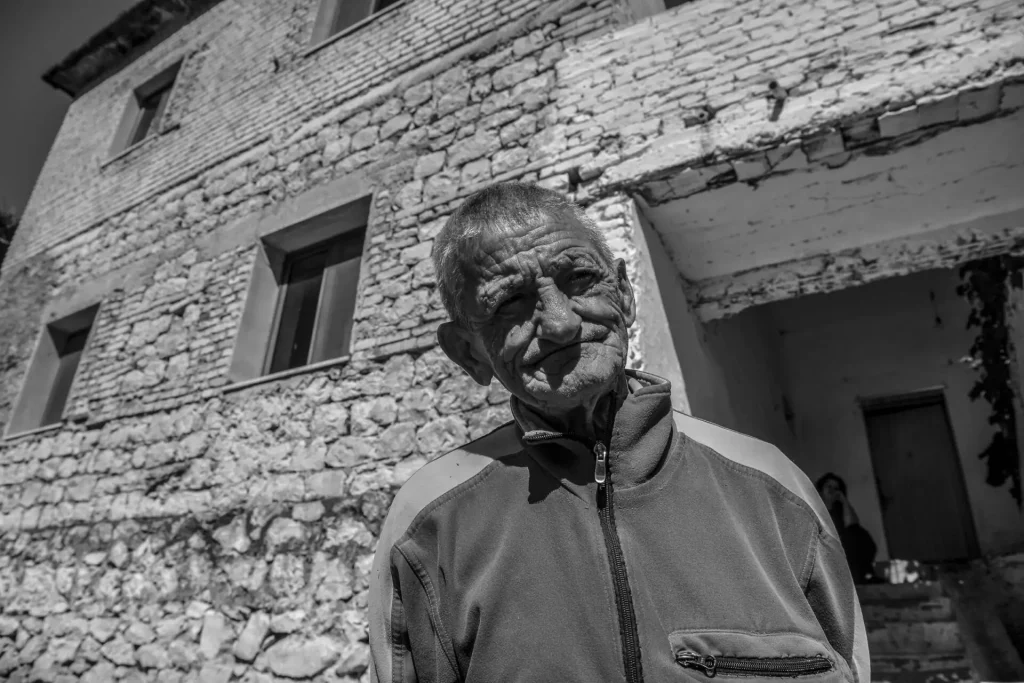
Here in Torovicë, especially in the former prison and internment camp, problems are not being solved, at least not by the state. ‘No investments in water supply, sewage, electricity, or roads’, says Preng Gjoka, a former resident who left years ago and happened to be there that day to visit his former neighbors, two elderly people who hurriedly try to leave to ‘avoid’ the journalists…! We couldn’t understand why they are afraid to talk, since here words are the only thing people try to express freely.
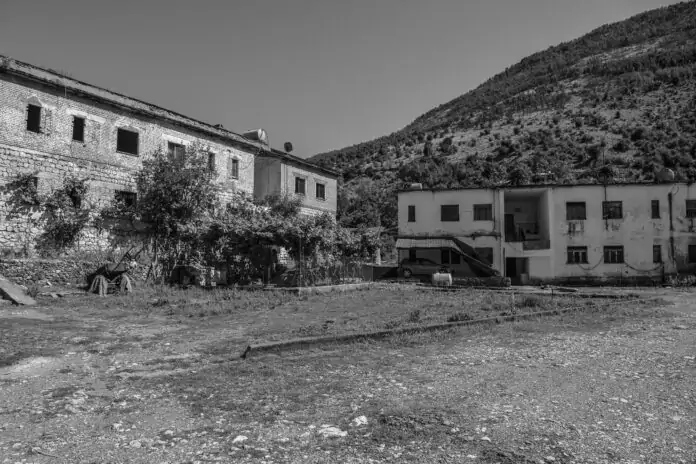
In the homes of the Paçrama and Lubonja families
We sought the names of well-known individuals who had been held against their will in that hellish camp, and the few remaining residents unanimously pointed us to the corner of the camp building, specifically on the first floor. ‘Here lived the interned family of Fadil Paçrami. Next door lived the family of Todi and Fatos Lubonja’, says Ndue Velaj, the earliest witness from that time who saw how, after their release, they came and took whatever clothes were left. Their misfortune began at the 4th Plenum of the Party of Labour of Albania, held June 26–28, 1973, when Todi Lubonja, director of RTSH, and Fadil Paçrami, Minister of Education and Culture, were singled out by Enver Hoxha in a campaign against liberalism and ‘foreign influences’, connected to the 11th RTSH festival, where they were accused of ‘foreign performances’ and ‘liberalism’.
Todi Lubonja served 13 years in prison, was released in 1987, and was interned precisely in Torovicë until 1990, while his family endured internment there from 1973. Likewise, Fadil Paçrami and his family suffered the same fate for the same accusations, at the same internment site.
Nothing has changed
The four buildings served during the communist regime, initially from 1956 to 1963, as a prison where those sentenced were forced to work draining marshes, surrounded by barbed wire and guarded by wardens, police, and State Security officers.
Documents are scarce, but testimonies from residents widely report that over 300 prisoners and internees lived there, coming and going at different times.
After 1963, the place was turned into an internment camp, where people were not allowed to leave the area without permission and were under constant surveillance by police and state security. Time wears down even the walls, but here in Malecaj of Torovicë, these camps have persisted through all times.
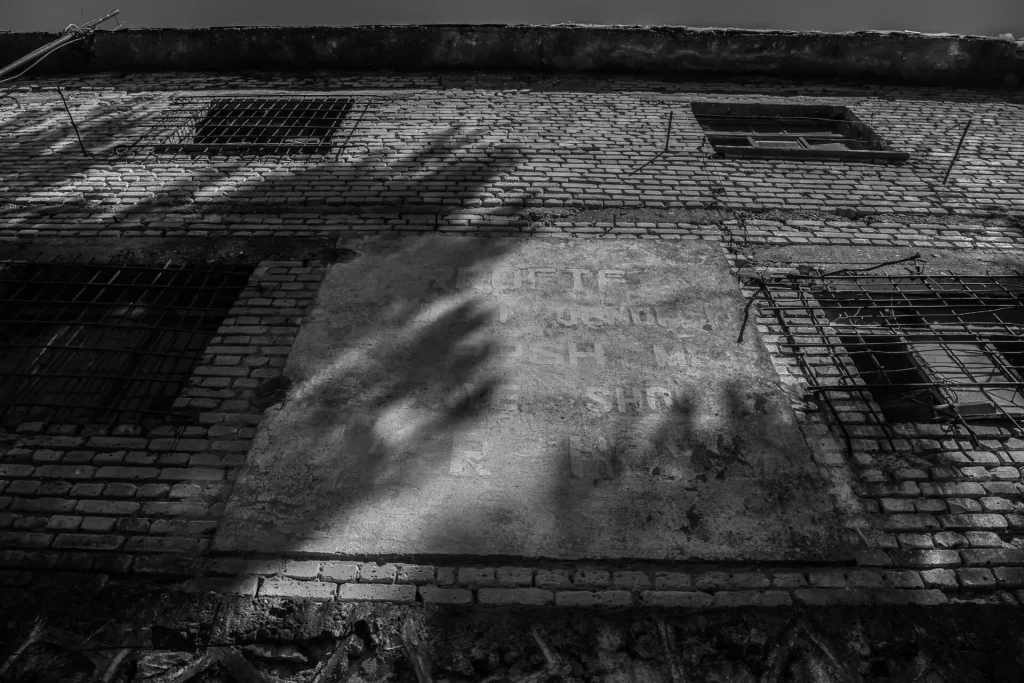
‘The Party is the brain and heart of the people.
Long live the Central Committee of the
Party of Labour of Albania (PPSH) led by comrade Enver Hoxha’, reads the slogan at the entrance of one of the buildings.
‘The Party is the brain and heart of the people. Long live the Central Committee of the PPSH led by comrade Enver Hoxha’, is the slogan placed right at the entrance of one of the camp buildings that served as administration and dining hall. No one has dared to remove or erase it, not because they want to remember the past to prevent its repetition, but because no one ‘dares’ to leave that somber camp! Maria was 29 when she arrived at the ‘internment camp’ full of hope that life would get better. Three decades later, nothing has changed for her or the other 30 residents ‘interned’ during the democratic period. ‘Life is like it was during internment, but I am free to go to Lezhë and elsewhere without needing anyone’s permission’, says Maria, a statement confirmed by her husband Ndue.
Traces
The traces of communism’s legacy are everywhere; nothing has been altered in the somber camp. The only ‘new investment’ is a small statue of Saint Mary, which those who remain have turned into a sacred place. The only one they still have faith in!

